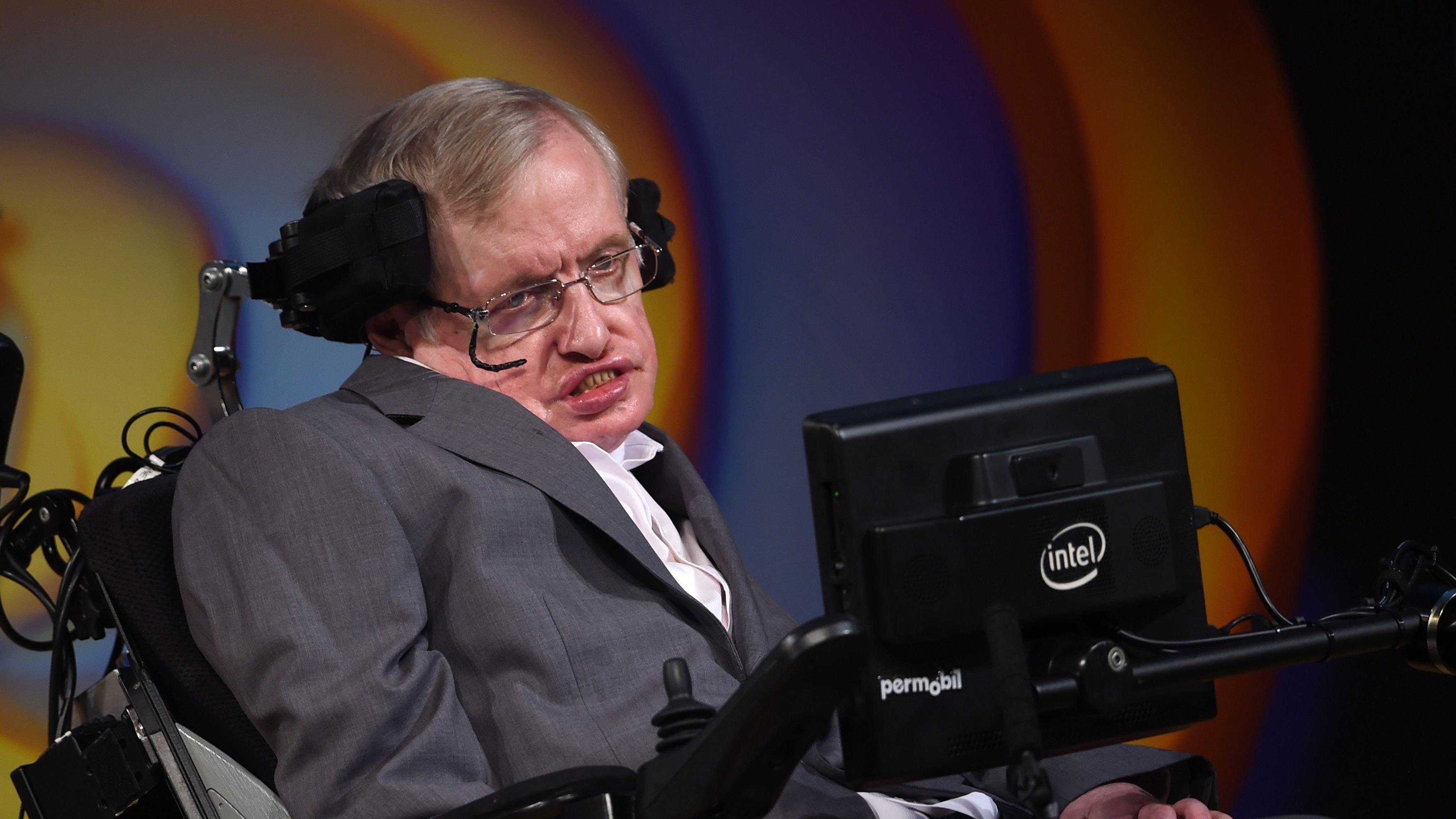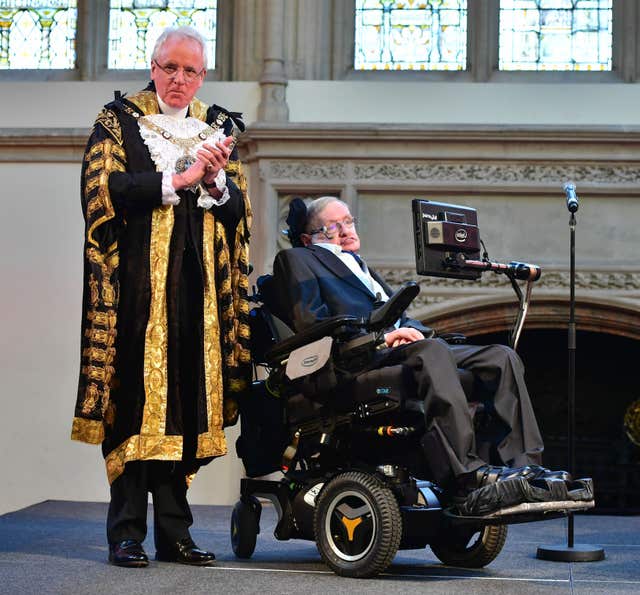
RENOWNED British physicist Professor Stephen Hawking, one of the world’s finest scientific minds, has died at the age of 76, a family spokesman said.
He died peacefully at his home in Cambridge in the early hours of Wednesday morning.
In a statement, his children Lucy, Robert and Tim said: “We are deeply saddened that our beloved father passed away today.
“He was a great scientist and an extraordinary man whose work and legacy will live on for many years.
“His courage and persistence with his brilliance and humour inspired people across the world.
“He once said, ‘It would not be much of a universe if it wasn’t home to the people you love.’ We will miss him forever.”
Prof Hawking was born on January 8 1942 in Oxford, the eldest of four children, and went on to become one of the world’s most acclaimed cosmologists.
He was diagnosed with ALS, a rare form of motor neurone disease, in his 20s, eventually becoming wheelchair-bound and dependent on a computerised voice system for communication.
But despite this, he continued to travel the world giving science lectures and writing scientific papers about the basic laws which govern the universe.
With Roger Penrose, he showed that Einstein’s General Theory of Relativity implies space and time would have a beginning in the Big Bang and an end in black holes.
These results indicated that it was necessary to unify general relativity with quantum mechanics, the other great scientific development of the first half of the 20th century.
He also discovered that black holes should not be completely black, but rather should emit radiation and eventually evaporate and disappear – this radiation is now called Hawking Radiation.
His book, A Brief History Of Time, has sold more than 10 million copies.
The University of Cambridge, where Professor Hawking studied and worked, will open a book of condolence at Gonville and Caius College.

Enjoy the convenience of having The Sunday Post delivered as a digital ePaper straight to your smartphone, tablet or computer.
Subscribe for only £5.49 a month and enjoy all the benefits of the printed paper as a digital replica.
Subscribe
